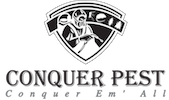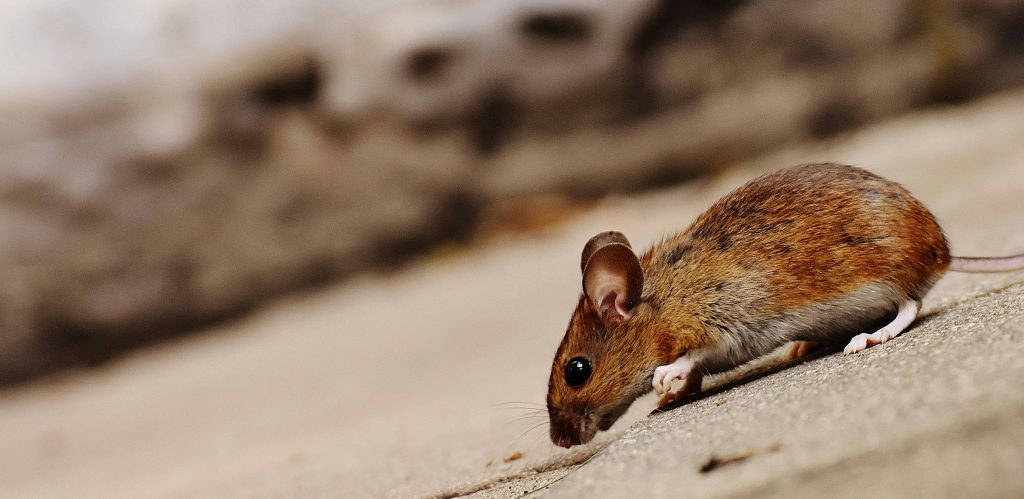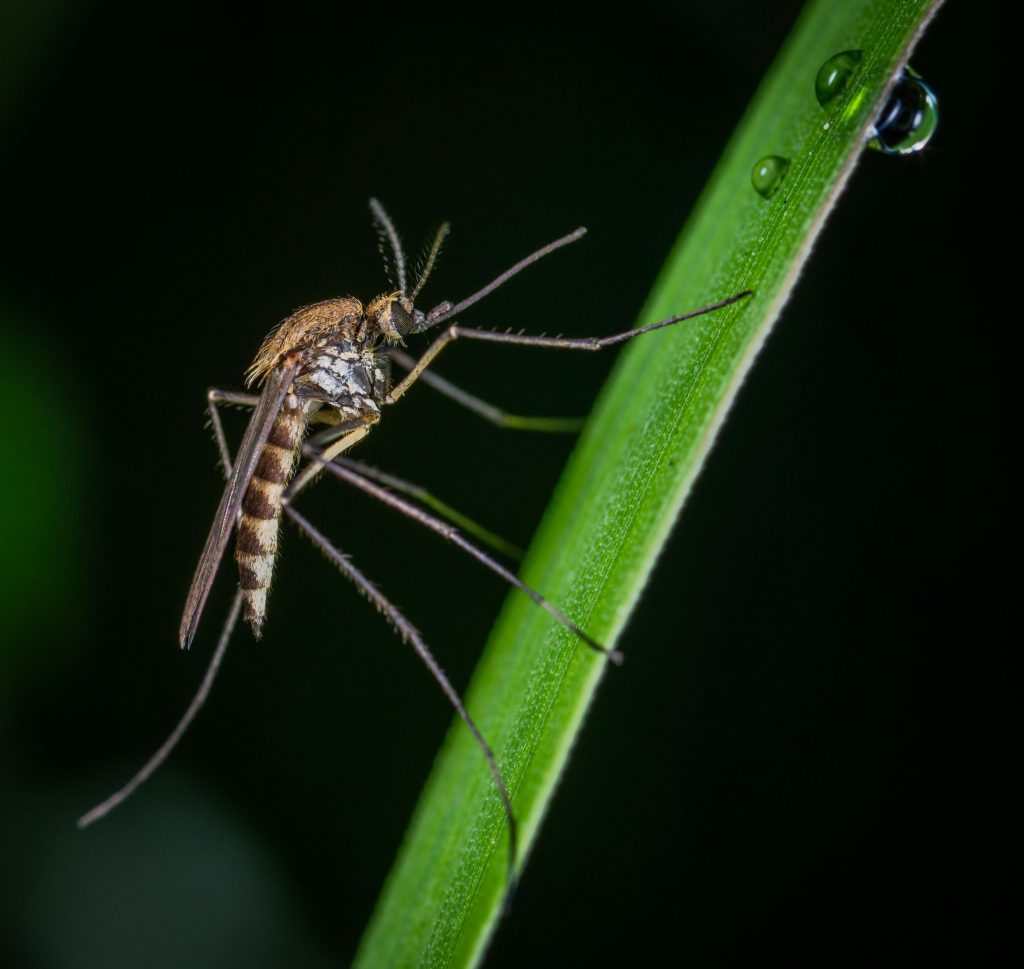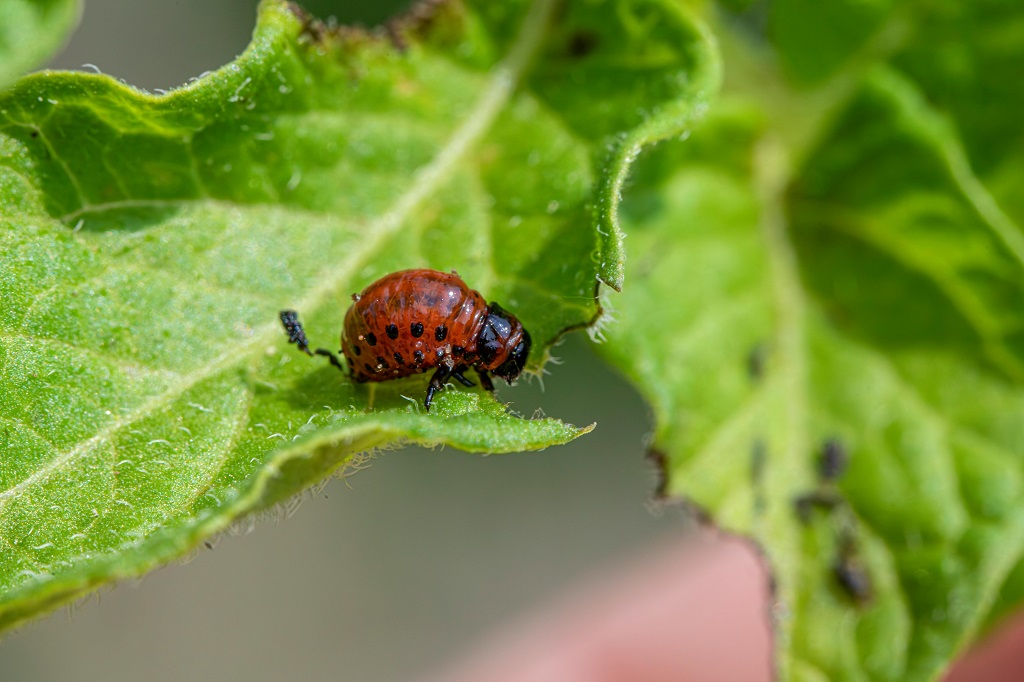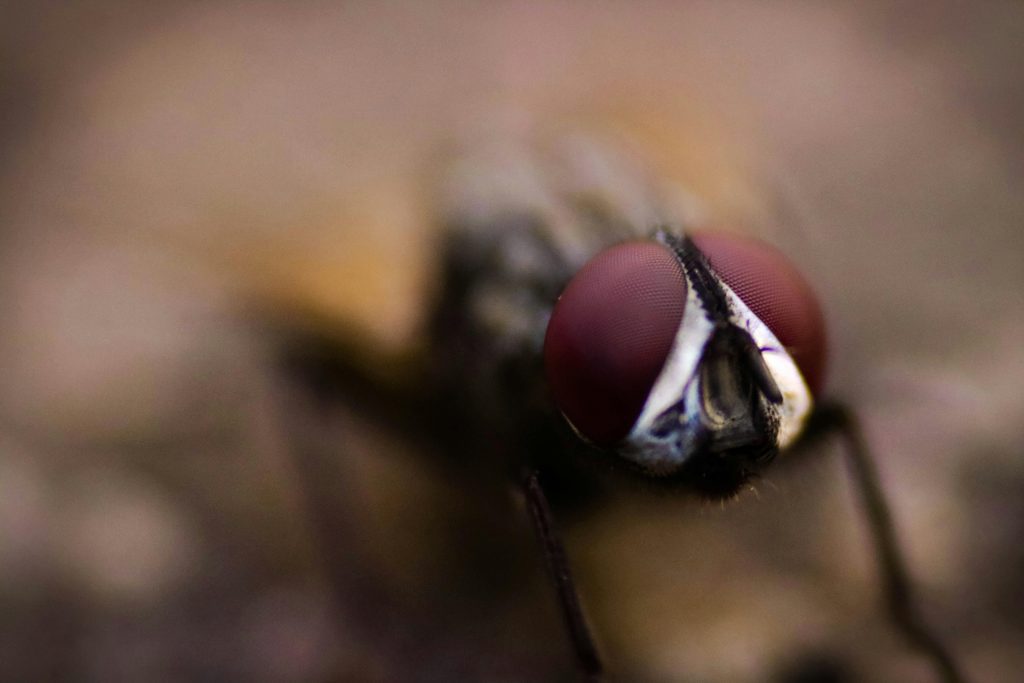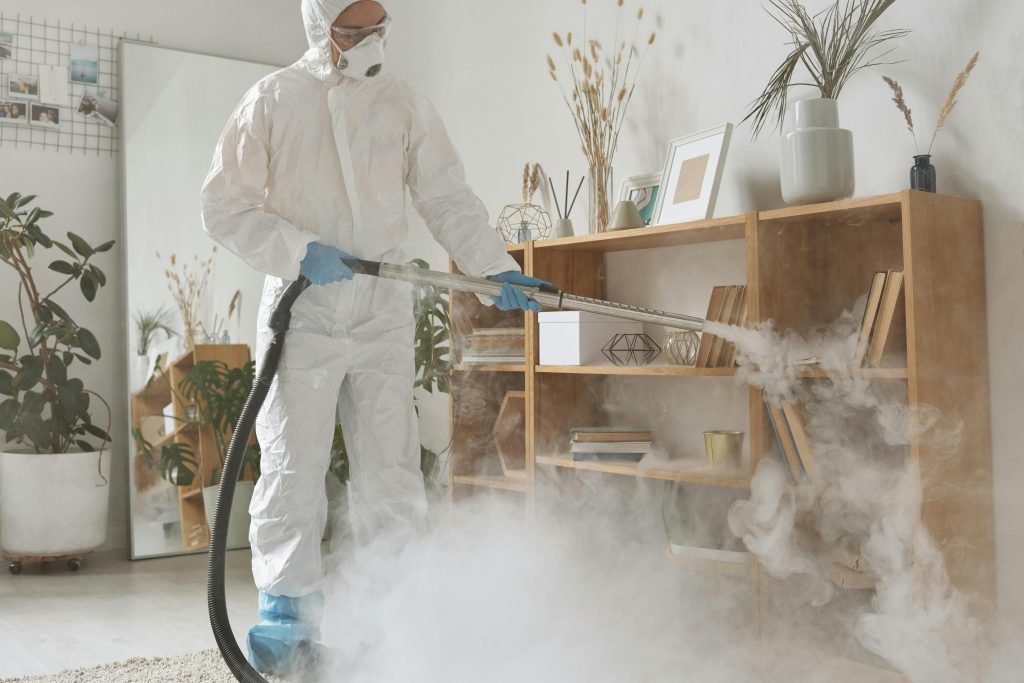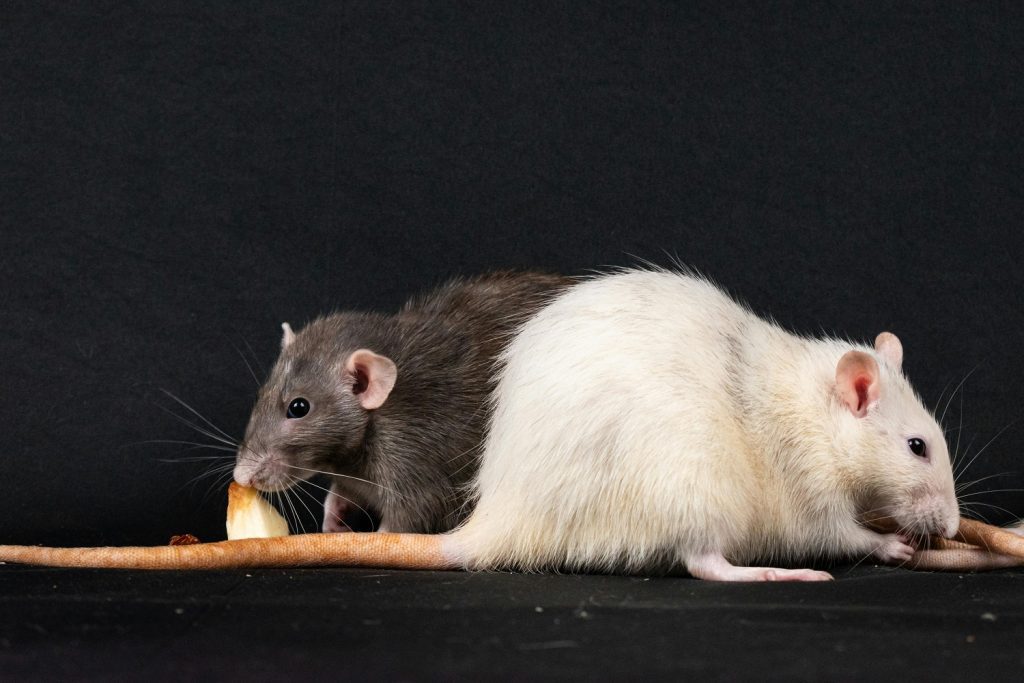How to Pest-Proof Your Singapore Condo or HDB Flat: A Practical Guide

Singapore’s high-density living makes pest control an essential concern for both condo and HDB flat residents. Whether you’re dealing with ants marching across your kitchen or cockroaches sneaking into your bathroom, pests can be more than just a nuisance—they pose health risks and can damage your home.
At Conquer Pest, we believe every home is an essential part of our Singaporean community. By maintaining a pest-free environment, we strengthen the health and harmony of the entire neighbourhood. This practical guide will help you understand the best pest-proofing strategies for your condo or HDB flat—plus when to call in the professionals.
Why Pest Control Is Crucial in Singapore Condos and HDB Flats
Singapore’s tropical climate, combined with densely populated housing, creates ideal conditions for pests like cockroaches, ants, termites, rodents, and mosquitoes to thrive.
Here’s why pest control in condos and HDB flats is so important:
- Health risks: Pests carry diseases like dengue fever, salmonella, and asthma-triggering allergens.
- Property damage: Termites and rodents can chew through wood, wiring, and insulation.
- Reputation: For landlords and tenants alike, a pest problem can lower property value and harm your reputation.
At Conquer Pest, we don’t see your home as just another unit. We see it as part of a greater whole—and keeping it pest-free protects the entire community.
10 Practical Tips to Pest-Proof Your Singapore Home
1. Seal Entry Points
Pests often sneak in through tiny gaps and cracks. Conduct a thorough inspection and seal:
- Window frames and door edges
- Gaps around pipes, especially under sinks
- Air vents and drainage points
Use silicone-based caulk or door sweeps where necessary.
2. Keep Your Kitchen Spotless
Your kitchen is a major hotspot for pests like ants and cockroaches.
- Clean up crumbs and spills immediately
- Store dry goods in airtight containers
- Wipe down countertops after meals
- Take out the rubbish daily
3. Fix Leaks and Eliminate Standing Water
Mosquitoes breed in stagnant water, and cockroaches are attracted to moisture.
- Repair leaking taps and pipes promptly
- Ensure there’s no water pooling in the bathroom or kitchen
- Clear air-conditioning drip trays regularly
4. Regularly Dispose of Rubbish
Leaving rubbish to pile up attracts rodents, cockroaches, and flies.
- Use bins with tight-fitting lids
- Empty bins daily
- Clean bins weekly with disinfectant
5. Declutter Your Home
Pests love to hide in clutter.
- Dispose of old magazines, cardboard boxes, and unused items
- Keep storage spaces tidy
- Store belongings off the floor when possible
6. Inspect and Maintain Drains
Drains can harbour cockroaches and other pests.
- Regularly flush drains with hot water
- Use drain covers to block access
- Pour enzyme-based cleaners to prevent buildup
7. Install Insect Screens
Keep flying pests out by fitting insect screens on:
- Windows and balcony doors
- Ventilation outlets
- Exhaust fans
8. Care for Houseplants
Overwatering indoor plants can lead to fungus gnats and mosquitoes.
- Avoid letting water accumulate in plant saucers
- Use sand instead of soil for indoor plants where practical
- Regularly inspect plants for pest activity
9. Engage in Regular Pest Control Services
Even with prevention, pests may still find their way in.
- Schedule regular inspections with a licensed pest control company in Singapore, like Conquer Pest
- Early detection prevents infestations from escalating
10. Educate the Whole Family
Pest-proofing works best when everyone in the household participates.
- Teach children to clean up after meals
- Remind everyone to close doors and windows
- Encourage habits like wiping down surfaces after use
Common Pests in Singapore Condos and HDB Flats
Knowing your enemy helps you fight smarter! Here are the most common pests:
- Cockroaches: Thrive in moist, dark places. Common in kitchens and bathrooms.
- Ants: Attracted to sweet and greasy foods. Often form long trails to food sources.
- Termites: Silent destroyers of wooden furniture and structures.
- Rodents: Can squeeze through tiny gaps, damage property, and spread disease.
- Mosquitoes: Breed in stagnant water and are carriers of dengue fever.
At Conquer Pest, we provide targeted pest control services in Singapore for all these common invaders.
Why Choose Conquer Pest for Your Condo or HDB Pest Control?
At Conquer Pest, our mission goes beyond just eliminating pests—we aim to protect and improve the community in Singapore. We:
- Treat every home as an essential part of the larger community
- Use environmentally responsible solutions that are safe for children and pets
- Employ NEA-licensed pest control specialists
- Provide transparent pricing with no hidden costs
- Offer tailored solutions for both homes and businesses
If you’re ready to protect your home and contribute to a healthier Singapore, contact us today!
When to Call the Experts
While prevention is key, there are times when DIY measures aren’t enough. Contact Conquer Pest if:
- You spot droppings, nests, or chew marks
- You hear scurrying or scratching sounds in walls
- You see pests during the daytime (a sign of heavy infestation)
- You notice damage to wood, wires, or fabrics
We offer fast, effective pest control services customised for your condo or HDB flat. Book your consultation here.
FAQs About Pest-Proofing Your Condo or HDB Flat in Singapore
Conclusion
Pest-proofing your Singapore condo or HDB flat is an ongoing effort—but you’re not alone in this fight. By taking proactive steps and partnering with a trusted pest control expert like Conquer Pest, you can enjoy a safe, clean, and pest-free home.
We see every home as a vital part of Singapore’s community. Let’s work together to create a healthier, pest-free environment. Ready to take the next step? Contact Conquer Pest today for a customised solution!
How Singapore’s Weather Fuels Pest Infestations


Singapore’s world-class cityscape, lush greenery, and warm climate are points of pride for residents and visitors alike. However, beneath the surface of this vibrant city lies a silent yet persistent problem—pest infestations. If you live in Singapore, you’ve likely dealt with pests at some point. Whether it’s cockroaches scurrying across the kitchen or mosquitoes buzzing at your ears, these nuisances are more than a minor inconvenience—they can pose serious health risks and cause significant property damage.
But why is pest control such an important issue in Singapore? The answer lies largely in our climate. Singapore’s hot, humid tropical weather creates an environment where pests not only survive but thrive.
Why Singapore’s Weather Attracts Pests
Singapore’s climate is classified as a tropical rainforest climate, with high temperatures, high humidity, and significant rainfall throughout the year. These factors create the perfect breeding grounds for various pests, from insects to rodents.
1. Warm Temperatures All Year Round
- Singapore’s average daily temperature ranges between 25°C and 31°C, with very little variation between seasons.
- Most pests are cold-blooded, meaning their body temperature and activity levels are dependent on the external environment. The warmth encourages pests to be active year-round.
- High temperatures speed up the life cycle of many pests, allowing them to reproduce faster. For example, the reproductive cycle of cockroaches shortens in warmer conditions, leading to rapid population explosions if left unchecked.
2. High Humidity
- Singapore’s humidity often exceeds 80%, especially during the monsoon seasons.
- Humid environments create moisture-rich areas, which are attractive to pests like termites, cockroaches, and mould mites.
- Moisture not only provides an ideal habitat for pests to survive, but it also promotes the decay of organic material, which serves as a food source for some pests.
3. Heavy Rainfall and Monsoons
- Singapore experiences two major monsoon seasons—the Northeast Monsoon (December to early March) and the Southwest Monsoon (June to September).
- During these times, heavy rainfall can flush pests out of their burrows and nests, forcing them into homes and commercial buildings in search of shelter.
- Water accumulation from rain creates stagnant pools, which are ideal breeding sites for mosquitoes, particularly the Aedes mosquito, the vector for dengue fever and Zika virus.
Common Pests That Thrive in Singapore’s Weather
Singapore’s weather conditions encourage the growth and spread of a variety of pests. Here’s a closer look at some of the most common pests Singaporeans face:
1. Mosquitoes
- Mosquitoes are perhaps the most notorious pest in Singapore, especially during the rainy season.
- Aedes mosquitoes thrive in urban environments and lay eggs in clean, stagnant water.
- In addition to being a nuisance, these mosquitoes are carriers of diseases such as dengue fever, chikungunya, and Zika virus.
- Singapore’s National Environment Agency (NEA) actively monitors mosquito populations, but community involvement and professional pest control remain crucial in reducing outbreaks.
2. Termites
- Termites are silent destroyers, causing millions of dollars’ worth of property damage annually.
- Singapore’s humid climate creates damp conditions in wood and soil, attracting subterranean termites.
- These pests can go undetected for months or even years while they hollow out wooden structures, potentially compromising the integrity of homes and commercial buildings.
3. Cockroaches
- Cockroaches are extremely adaptable and thrive in Singapore’s warm, moist conditions.
- They are commonly found in kitchens, bathrooms, and rubbish chutes, where food and water are readily available.
- Cockroaches are known carriers of bacteria, viruses, and allergens, posing serious health risks, especially in areas that serve or prepare food.
4. Rodents (Rats and Mice)
- Rodents seek shelter during heavy rains and floods, often finding refuge in homes, food establishments, and commercial buildings.
- Singapore’s climate allows rodents to breed year-round, increasing their populations rapidly if left unchecked.
- Rats and mice not only damage property by gnawing on wires and structures, but they also spread diseases such as leptospirosis and salmonellosis.
5. Ants
- Ants are commonly found in residential and commercial properties, especially in kitchens where food is stored.
- The moisture in the air and abundant food sources create ideal conditions for ant colonies to expand.
- Certain species, like carpenter ants, can cause damage to wooden structures similar to termites.
How to Prevent Pest Infestations in Singapore’s Climate
Preventing pest infestations requires a combination of proactive habits, home maintenance, and professional pest control services. Here are some practical tips to keep pests at bay:
1. Eliminate Standing Water
- Regularly check your property for containers that collect water, such as flower pots, gutters, and drains.
- Ensure proper drainage around your home to prevent waterlogging.
- Replace water in vases and pet bowls daily to eliminate mosquito breeding grounds.
2. Seal Entry Points
- Inspect doors, windows, and walls for cracks, gaps, and holes, and seal them with caulk or weather stripping.
- Install door sweeps and window screens to prevent insects from entering.
3. Maintain Cleanliness
- Keep your home or business clean and clutter-free, focusing on kitchens and storage areas.
- Store food in airtight containers, and clean up crumbs and spills immediately.
- Dispose of garbage regularly and keep bins sealed tightly.
4. Control Moisture Indoors
- Fix leaky pipes, faucets, and air conditioning units to prevent moisture build-up.
- Use dehumidifiers in areas prone to dampness, such as basements and storerooms.
5. Regular Inspections and Maintenance
- Schedule routine inspections by professional pest control experts, such as Conquer Pest.
- Professional services can detect early signs of infestation and implement preventative treatments tailored to your property’s needs.
Why Professional Pest Control Is Essential in Singapore
Given the relentless climate conditions, DIY pest control solutions are often temporary fixes. A comprehensive pest management programme is necessary to address the root causes of infestations.
At Conquer Pest, we provide tailored pest control solutions for both residential and commercial properties in Singapore. Our team of NEA-licensed technicians uses eco-friendly treatments that are safe for your family, pets, and the environment. We go beyond simple extermination to educate homeowners and businesses about pest prevention, contributing to a healthier and safer community.
Our mission is to improve the Singaporean community by promoting a proactive approach to pest management. Your home is not just another project for us—it’s an essential part of a larger community, and we’re committed to ensuring that every part of that community remains in outstanding condition.
Ready to protect your property? Visit our Contact Page to schedule an inspection or consultation today!
Frequently Asked Questions (FAQs)
Conclusion
Singapore’s climate, while beautiful and life-giving, presents unique challenges when it comes to pest control. With persistent warmth, humidity, and heavy rainfall, pests like mosquitoes, termites, rodents, and cockroaches will always find ways to infiltrate homes and businesses.
By understanding the connection between weather and pest behaviour, and taking proactive steps, you can minimise pest infestations. And when prevention isn’t enough, partnering with a trusted pest control service like Conquer Pest ensures that your home or business remains safe, healthy, and pest-free.
Eco-Friendly Pest Control in Singapore: The Complete Green Guide for a Safer Home and Business
Introduction
As Singaporeans become increasingly eco-conscious, there’s a growing demand for sustainable solutions across industries — including pest control. The nation’s tropical climate and urban density provide ideal conditions for pests to thrive, making effective pest management essential for maintaining healthy living and working environments.
However, traditional pest control methods often rely on chemical-based treatments that pose risks to human health and the environment. Eco-friendly pest control solutions are gaining popularity as they strike a balance between effective pest management and environmental sustainability. This guide explores green pest control, its benefits, effective methods, and why Conquer Pest is your trusted partner for sustainable pest management.
What is Eco-Friendly Pest Control?
Eco-friendly pest control involves environmentally responsible practices that manage and eliminate pests while prioritising the health of humans, animals, and the environment. Unlike traditional methods that rely heavily on chemical pesticides, green pest management focuses on prevention, targeted treatments, and the use of natural solutions.
Key elements of eco-friendly pest control include:
- Integrated Pest Management (IPM): A holistic approach that combines biological, cultural, mechanical, and physical strategies to prevent and control pest issues.
- Targeted Treatments: Solutions designed to specifically target pests without harming beneficial organisms.
- Eco-Friendly Alternatives: Use of plant-based products, natural deterrents, and sustainable methods.
By focusing on prevention and safe treatments, green pest control provides long-term results without compromising health or environmental safety.
Benefits of Eco-Friendly Pest Control Solutions
1. Protects Health and Safety
Reducing exposure to harmful chemicals safeguards your family, pets, employees, and customers from the long-term health effects of toxic pesticides.
2. Environmentally Friendly
Eco-friendly solutions minimise toxic chemical runoff and pollution, preserving Singapore’s natural ecosystem.
3. Effective Pest Management
Contrary to common misconceptions, green pest control methods are highly effective when applied by professionals. They target pests without the collateral damage caused by harsh chemicals.
4. Sustainable Long-Term Results
Eco-conscious pest control prioritises prevention and maintenance, reducing the need for frequent treatments and offering long-term solutions.
To learn more about safe and effective solutions for rodents, visit Rodent Pest Control.
Eco-Friendly Methods for Common Pests in Singapore
1. Rats
Rats are a persistent problem in Singapore, capable of spreading diseases and damaging property. Eco-friendly methods include:
- Sealing entry points with durable mesh to block rat access.
- Using humane traps instead of poison for safe capture and release.
- Implementing rodent surveillance technology for early detection.
2. Cockroaches
These resilient pests require persistent efforts for control:
- Maintain cleanliness to eliminate food and water sources.
- Use natural repellents like essential oils (peppermint and eucalyptus).
- Apply diatomaceous earth, a non-toxic pesticide, to control infestations.
3. Mosquitoes
Given the risk of dengue and Zika in Singapore, controlling mosquitoes is critical:
- Eliminate stagnant water where mosquitoes breed.
- Use eco-friendly larvicides such as Bacillus thuringiensis (Bt).
- Install physical barriers like mosquito nets and screens.
4. Termites
Termites cause structural damage if left unchecked:
- Install physical barriers such as stainless steel mesh during construction.
- Use termite baiting systems with growth inhibitors to control colonies.
- Treat wood with non-toxic borate solutions for long-term protection.
5. Ants
To prevent ants from invading your space:
- Use citrus-based sprays as natural deterrents.
- Maintain proper sanitation by cleaning food spills immediately.
- Seal cracks and gaps where ants can enter.
Steps to Implement Green Pest Control
1. Inspection
A thorough site inspection is essential to identify pest infestations and their severity. Understanding the extent of the problem helps in creating an effective eco-friendly solution.
2. Prevention
Minimising chemical use starts with preventive measures. Seal entry points, improve waste management, and reduce attractants such as food residue and standing water.
3. Customised Treatments
Tailored solutions based on the specific pest issue ensure effective results without harming the environment. Each pest and property requires a unique approach.
4. Monitoring & Maintenance
Regular monitoring ensures that pest control solutions remain effective. Maintenance helps identify potential issues early and keeps treatments intact.
5. Education & Awareness
Educating occupants about eco-friendly pest control practices promotes a proactive approach to pest prevention and ensures that everyone plays a role in maintaining a pest-free environment.
Choosing the Right Green Pest Control Provider in Singapore
When selecting a green pest control service in Singapore, consider the following:
1. Experience and Expertise
Choose a provider with a proven track record in handling pest issues using eco-friendly methods.
2. Certifications
Look for companies that follow Integrated Pest Management (IPM) principles and meet green pest control standards.
3. Customised Solutions
Effective pest management requires tailored strategies based on the type and severity of the infestation.
4. Commitment to Sustainability
Ensure the provider uses innovative and safe methods that minimise environmental impact.
Conquer Pest offers eco-friendly pest control solutions that are safe, effective, and customised for your needs. Our expert team is trained to provide long-lasting solutions for both residential and commercial properties.
Why Choose Conquer Pest for Green Pest Control in Singapore?
With over 20 years of experience, Conquer Pest is a trusted leader in eco-friendly pest control solutions. Here’s what sets us apart:
- Comprehensive Inspections: We identify root causes and provide targeted solutions.
- Safe & Eco-Friendly Methods: Our treatments prioritise the health of your family, pets, and employees.
- Customised Solutions: Tailored strategies for effective pest management.
- Experienced Technicians: Our experts are trained to handle even the most challenging infestations.
Contact us today through our contact page for expert eco-friendly pest control solutions.
Conclusion
Green pest control offers a balanced approach to managing pests while safeguarding health and the environment. By adopting sustainable practices, you can protect your home or business from pests without compromising on safety or effectiveness.
Whether you’re dealing with rats, cockroaches, mosquitoes, or termites, eco-friendly solutions are the way forward. Trust Conquer Pest to provide professional, safe, and effective green pest control tailored to your needs.
FAQs
Effective Rat Control in Singapore: Tips, Risks & Expert Solutions
Introduction
Did you know that a single pair of rats can multiply into over 1,500 in just one year? Rat infestations are a persistent problem in Singapore due to its urban landscape, humid climate, and abundant food sources. These pesky rodents pose severe risks to public health, damage properties, and tarnish business reputations.
If you’ve spotted telltale signs of a rat problem, taking prompt action is essential. This guide explores the dangers of rat infestations, effective prevention strategies, and how expert solutions from Conquer Pest can help keep your property safe.
Why Rat Infestations are a Serious Concern in Singapore
Rats may seem small, but their impact is anything but. Here’s why rat infestations require immediate attention:
1. Health Risks
Rats carry and spread dangerous diseases through their droppings, urine, and saliva, including:
- Salmonella: Causes vomiting, fever, and diarrhoea when food or water is contaminated by rat faeces.
- Leptospirosis: Transmitted through rat urine, leading to severe symptoms such as muscle aches, jaundice, and liver damage.
- Hantavirus: Inhalation of dust contaminated with rat droppings or urine can cause serious respiratory issues.
- Rat-Bite Fever: Can result from direct contact with rats or their secretions, causing fever, headaches, and joint pain.
2. Property Damage
Rats are notorious for their gnawing habits. They chew through electrical wires, wooden structures, pipes, and even concrete. This destructive behaviour increases the risk of electrical fires and expensive repair work.
3. Food Contamination
Rats rummage through rubbish and contaminate food surfaces with harmful bacteria, posing a direct risk to health and food safety.
4. Impact on Business Reputation
For businesses, especially those in the F&B and hospitality industries, a rat infestation can result in poor customer reviews, legal penalties, and a tarnished brand image.
Signs of a Rat Infestation
Early detection is crucial to managing rat infestations effectively. Be on the lookout for these signs:
- Droppings: Small, black, rice-shaped droppings near food sources or dark corners.
- Gnaw Marks: Irregular chew marks on furniture, wires, or stored goods.
- Tracks and Smudges: Greasy marks or footprints along walls and baseboards.
- Nesting Materials: Shredded paper, insulation, or fabric in hidden areas.
- Nocturnal Noises: Scratching, squeaking, or scuttling sounds from walls or ceilings at night.
- Musky Odour: A strong, stale smell in areas with severe infestations.
Effective Rat Prevention Tips
Prevention is the best solution. Here’s how to protect your home or business from rats:
For Homes:
- Store food in sealed, airtight containers.
- Keep pet food secured and never leave leftovers overnight.
- Clean up crumbs and spills immediately.
- Regularly inspect and seal gaps in walls, vents, and doors.
- Declutter storage areas and maintain cleanliness in seldom-used spaces.
For Businesses:
- Follow Singapore Food Agency guidelines for maintaining a pest-free environment.
- Implement waste management practices, such as using covered bins and disposing of rubbish daily.
- Inspect delivery goods for signs of rodent activity.
- Schedule regular pest control checks and maintenance.
Outdoor Tips:
- Properly maintain gardens and green spaces by trimming vegetation and clearing debris.
- Use rodent-proof compost bins.
- Seal basement windows and other potential entry points with high-quality mesh.
What to Do If You Have a Rat Infestation
If you suspect a rat problem on your property, prompt action is essential to prevent the situation from worsening. Rats multiply rapidly and can cause significant damage to your home or business while posing serious health risks. Here’s what you need to do:
1. Act Immediately
The sooner you address the problem, the easier it is to control. Early intervention can prevent the infestation from spreading and becoming a larger, more costly issue.
2. Identify Infestation Sites
Carefully inspect your property for signs of rodent activity. Look for droppings near food sources, gnaw marks on wood, plastic, or wires, and shredded materials used for nesting. Listen for scratching sounds in walls or ceilings, particularly at night.
3. Set Traps
Place snap traps or live traps in high-activity areas such as dark corners, along walls, or near entry points. Be strategic with trap placement and monitor them regularly.
4. Avoid Poison
While it may seem effective, rodenticides can pose risks to pets, children, and non-target wildlife. Decomposing rats can also create foul odours and sanitation issues.
5. Seek Professional Help
For severe infestations or if DIY efforts fail, contact a professional pest control company like Conquer Pest. Their trained experts ensure a safe, effective, and thorough extermination process, along with preventive guidance to keep your property rodent-free.
Why Choose Conquer Pest for Rodent Control?
With over 20 years of pest control experience, Conquer Pest offers expert solutions tailored to your specific rodent problem. Here’s why we are trusted by homeowners and businesses across Singapore:
- Comprehensive Inspections: We identify infestation sites and root causes.
- Safe & Eco-Friendly Solutions: Our treatments are safe for families and the environment.
- Preventive Measures: We provide guidance to prevent future infestations.
- Experienced Technicians: Our certified specialists handle even the toughest infestations.
Learn more about our rodent pest control services or contact us for a consultation today.
Conclusion
Rat infestations are far more than a mere inconvenience—they pose serious threats to health, property, and business reputations. These pests can spread dangerous diseases, damage structures through relentless gnawing, and contaminate food supplies. For businesses, especially in the F&B and hospitality industries, a rat infestation can lead to fines, bad reviews, and a loss of customer trust.
To protect your living or working environment, it’s crucial to stay vigilant by looking out for early signs of infestation and adopting preventive measures such as sealing entry points and maintaining a clean, clutter-free space. Prevention is always better than cure when it comes to pest control.
However, if rats have already invaded your property, professional help is essential for effective removal and long-term prevention. Trust the experts at Conquer Pest for safe, reliable, and thorough rodent control solutions tailored to your needs, giving you lasting peace of mind.
FAQs
10 Questions to Ask About Flies Control
Introduction
Flies can be more than just annoying pests—they are vectors of disease and can disrupt both residential and commercial spaces. Their presence in homes, restaurants, or other establishments can harm health, tarnish reputations, and lead to significant losses if not controlled effectively.
In Singapore, flies are particularly challenging due to the country’s warm, humid climate and dense urban environment. To help you tackle this problem effectively, we’ve compiled 10 essential questions to ask about flies control. For professional assistance, turn to Conquer Pest, a trusted pest control company with over 20 years of experience in keeping homes and businesses pest-free.
1. What Attracts Flies to My Property?
Flies are attracted to places where they can find food, water, and shelter. The most common attractants include:
- Unsealed Food and Waste: Leftover food, exposed garbage, and food crumbs are magnets for flies.
- Stagnant Water: Poorly maintained drains or areas with water accumulation create ideal breeding grounds.
- Organic Decay: Compost piles, rotting fruit, or spoiled food are hotspots for flies.
Singapore’s tropical climate further promotes fly activity. To reduce fly attraction, ensure proper waste disposal, regular cleaning, and prompt handling of food residues. Learn more about specific fly behaviors by visiting Conquer Pest’s fly control page.
2. Why Is Flies Control Important?
Flies aren’t just an inconvenience—they can pose serious health risks and cause reputational harm. Here’s why flies control is crucial:
- Health Risks: Flies carry pathogens that can cause diseases such as typhoid, cholera, salmonella, and dysentery. They contaminate food and surfaces by landing on them after visiting filthy areas.
- Reputational Damage: For businesses, particularly in the F&B or hospitality sector, flies signal poor hygiene and can result in customer complaints, bad reviews, or even regulatory action.
- Operational Disruptions: Severe infestations can lead to operational downtimes, especially if public health authorities intervene.
By addressing fly problems early, you can protect your health, safeguard your reputation, and maintain a clean environment.
3. How Can I Identify a Fly Infestation?
Early detection is key to preventing a full-blown infestation. Common signs of a fly problem include:
- Frequent Fly Sightings: If you consistently see flies indoors, especially near food preparation areas or garbage bins, it could indicate an infestation.
- Presence of Maggots: Maggots in trash bins, drains, or moist areas are a clear sign of breeding activity.
- Unpleasant Odors: Organic decay, often accompanied by flies, produces a distinct foul smell.
- Fly Droppings: Small dark specks on walls or counters could be fly droppings.
For a professional assessment of your property, book a consultation with Conquer Pest.
4. What Types of Flies Are Common in Singapore?
Singapore’s urban environment is home to several fly species, each with unique habits:
- House Flies: Found near food and waste, these flies breed quickly and contaminate surfaces.
- Fruit Flies: Attracted to fermented fruits, vegetables, and sugary residues. They are often found in kitchens and food storage areas.
- Drain Flies: Thrive in poorly maintained drains, sewage systems, and moist areas like bathrooms and basements.
- Bluebottle Flies: Metallic blue in color, they breed on decaying matter, including dead animals and garbage.
Understanding the type of flies invading your property helps in determining the right control measures.
5. Are DIY Fly Control Methods Effective?
DIY methods can provide temporary relief, but they often fail to address the root cause of infestations. Common DIY strategies include:
- Fly Traps: Store-bought or homemade traps may catch a few flies but are ineffective against large populations.
- Chemical Sprays: While sprays can kill flies on contact, improper use can pose health risks to humans and pets.
- Natural Remedies: Essential oils or herbs like basil and peppermint may repel flies temporarily but are not reliable for long-term control.
For persistent or large-scale infestations, professional services like those from Conquer Pest offer targeted and lasting solutions.
6. What Are the Professional Methods for Flies Control?
Professional pest control services employ advanced techniques to eliminate flies and prevent their return. These methods include:
- Residual Sprays: Applied to breeding sites and fly hotspots to kill flies upon contact.
- UV Light Traps: These attract and trap flies using ultraviolet light, effectively reducing populations.
- Foaming Treatments: Used in drains to eliminate breeding grounds.
- Integrated Pest Management (IPM): A comprehensive approach that combines treatment, prevention, and monitoring for long-term results.
For customized solutions, contact Conquer Pest and learn how they can help.
7. How Can I Prevent Fly Infestations?
Prevention is more effective and less costly than dealing with an active infestation. Here are some tips to keep flies at bay:
- Proper Waste Management: Dispose of food waste in sealed bins and empty garbage regularly.
- Maintain Cleanliness: Wipe down surfaces, clean up food crumbs, and sanitize kitchen areas.
- Fix Drains and Leaks: Repair any leaks or clogs to prevent moisture accumulation.
- Seal Entry Points: Use screens or seal gaps around windows, doors, and vents.
Consistent efforts can significantly reduce the risk of flies invading your property.
8. How Often Should Pest Control Services Be Scheduled?
The frequency of pest control services depends on various factors, such as the type of property, the severity of infestation, and the environment:
- Residential Properties: Quarterly treatments are typically sufficient to prevent infestations.
- Food & Beverage Businesses: Monthly or bi-weekly treatments are recommended to ensure compliance with hygiene standards.
- Industrial Sites: Custom schedules based on operational needs and infestation levels.
Contact Conquer Pest offers flexible pest control plans tailored to your specific needs.
9. What Should I Expect During a Professional Fly Control Service?
A professional service typically involves the following steps:
- Inspection: Experts assess the property to identify fly species, breeding sites, and infestation levels.
- Treatment: Customized solutions such as sprays, traps, and foaming treatments are applied.
- Monitoring: Fly activity is monitored to evaluate the effectiveness of the treatment.
- Recommendations: Guidance is provided on preventive measures to avoid future infestations.
Conquer Pest’s trained technicians ensure thorough and effective fly control for lasting peace of mind.
10. How Do I Choose the Right Pest Control Company?
Selecting the right pest control provider is essential for effective results. Key factors to consider include:
- Experience: Choose a company with a proven track record, like Conquer Pest, which has over 20 years of experience.
- Certifications: Ensure the company is certified by Singapore’s National Environment Agency (NEA).
- Customer Reviews: Look for positive feedback from previous clients to gauge reliability and service quality.
- Custom Solutions: Opt for providers who tailor treatments to your specific needs.
For professional fly control in Singapore, contact Conquer Pest to learn more about their trusted services.
Conclusion
Flies control is essential for maintaining hygiene, protecting health, and safeguarding the reputation of your home or business. By understanding the factors that attract flies, recognizing signs of infestation, and choosing effective control measures, you can keep your property fly-free.
For expert guidance and professional services, trust Conquer Pest to deliver tailored solutions. Their experienced team is ready to help you tackle any fly problem—big or small. Contact Conquer Pest to schedule a consultation today!
FAQs About Flies Control
What You Need to Know About Dealing with Rats in Singapore
Rats are one of the most persistent and challenging pests to manage, particularly in urban areas like Singapore. Despite the city-state’s stringent hygiene standards, its tropical climate and dense population provide an ideal environment for rats to thrive. In this comprehensive guide, we’ll cover everything you need to know about dealing with rats in Singapore and how Conquer Pest can help.
Why Are Rats a Problem in Singapore?
1. Health Risks
Rats are carriers of diseases such as leptospirosis, hantavirus, and salmonellosis, posing a significant health risk. Contaminated food, water, and surfaces can lead to severe illnesses, especially in vulnerable populations like children and the elderly.
2. Structural and Economic Damage
These rodents gnaw on wiring, pipes, and wood, causing potential fire hazards and costly repairs. For businesses, particularly those in the food and hospitality industries, rat infestations can lead to reputational damage and regulatory penalties.
3. Rapid Reproduction
A pair of rats can multiply quickly, creating a colony in a matter of weeks. This rapid growth makes early intervention critical.
Common Types of Rats in Singapore
1. Norway Rat (Brown Rat)
The Norway Rat, commonly known as the Brown Rat, is notable for its large size and burrowing tendencies. These rats prefer to live in ground-level spaces, often establishing their nests in sewers, basements, or other damp, hidden areas. Their burrowing habits make them particularly destructive to infrastructure, as they often undermine foundations or damage pipes.
2. Roof Rat (Black Rat)
Smaller and more agile than the Norway Rat, the Roof Rat is commonly found in elevated spaces such as attics, ceilings, and rooftops. Their slender bodies and excellent climbing abilities allow them to access areas that are often overlooked during inspections. Roof Rats are particularly problematic in high-rise buildings and are known to cause significant damage by gnawing on wiring and insulation.
3. House Mouse
Though smaller in size compared to rats, the House Mouse can be equally troublesome. These rodents are notorious for nesting indoors, often in cabinets, walls, and other confined spaces. Despite their size, House Mice pose considerable health risks as they contaminate food and surfaces with their droppings. Their rapid breeding rates make early detection and removal essential.
How to Identify a Rat Infestation
1. Physical Signs
Rats leave behind several telltale signs that indicate their presence. Droppings, which are dark and pellet-shaped, are often found in hidden areas such as corners or behind furniture. Gnaw marks on furniture, wires, walls, or food packaging are another common indicator of an infestation. Additionally, rats often leave tracks, including oily rub marks along walls or visible footprints in dusty areas.
2. Sounds and Smells
Rats are nocturnal and most active at night. If you hear scratching or scurrying noises in your walls, ceilings, or under floorboards, it’s a strong sign of their presence. Their nests and urine emit a musty, unpleasant odor that becomes noticeable as the infestation grows.
3. Nesting Materials
Rats use readily available materials to create their nests. Shredded paper, fabric, or insulation are commonly used, often found in secluded corners or behind appliances. Spotting such materials is a clear sign of nesting activity.
For a professional inspection, consider contacting Conquer Pest’s Rodent Control Experts.
Why Rats Thrive in Singapore
1. Climate and Environment
Singapore’s warm and humid climate provides ideal conditions for rats to breed and thrive. Unlike in temperate regions, the year-round warmth allows for continuous breeding cycles, making infestations more persistent.
2. Food and Waste
Rats are opportunistic feeders and thrive on improperly managed food waste. Open trash bins, food scraps, and spills attract these rodents, particularly in densely populated urban areas. The abundance of food makes it easier for rat populations to grow unchecked.
3. Structural Vulnerabilities
The urban landscape in Singapore offers numerous entry points for rats. Small cracks in walls, gaps under doors, and cluttered storage areas provide excellent nesting and hiding spots. Without routine inspections and maintenance, these vulnerabilities can quickly lead to infestations.
Steps to Prevent Rat Infestations
1. Maintain Cleanliness
Maintaining hygiene is the first line of defense against rats. Dispose of food waste promptly in sealed trash bins and clean up crumbs or spills immediately. Regular cleaning of food preparation and storage areas reduces the risk of attracting rodents.
2. Seal Entry Points
Rats can squeeze through openings as small as a coin. Inspect your home or business for cracks, gaps, or vents that may serve as entry points. Use metal mesh, caulk, or other durable materials to seal these openings and prevent access.
3. Proper Storage
Store food in airtight containers to eliminate easy access for rats. Additionally, declutter storage areas to minimize potential nesting spots. Regularly inspect pantries and storage spaces to ensure they are rodent-free.
4. Regular Inspections
Frequent inspections of your property can help detect signs of an infestation early. Schedule professional pest control checks to identify and address vulnerabilities before they escalate. Learn more about prevention measures at Conquer Pest.
What to Do If You Encounter a Rat Infestation
1. Avoid DIY Methods
While it may seem convenient, DIY rat control methods like traps and baits often fail to address the root of the problem. They may also pose risks to children and pets if not used correctly.
2. Consult Professionals
Professional pest control services are essential for effectively managing rat infestations. Experts like Conquer Pest offer comprehensive solutions, including:
- Thorough Site Inspections: Experts identify the severity of the infestation and the key areas of activity.
- Safe and Targeted Treatments: Solutions are tailored to eradicate rats without endangering humans or pets.
- Preventive Measures: Professional guidance helps prevent future infestations.
For immediate assistance, contact Conquer Pest today!
Legal and Community Responsibilities
1. NEA Guidelines
The National Environment Agency (NEA) mandates proper waste management and pest control in Singapore.
2. Community Collaboration
Residents and businesses should work together to maintain hygiene in shared spaces.
3. Reporting Infestations
Report persistent pest issues to the NEA or consult experts like Conquer Pest.
Conclusion
Rats in Singapore are more than just a nuisance—they pose serious health, structural, and economic risks. By recognizing the signs early, implementing preventive measures, and seeking professional help from trusted experts like Conquer Pest, you can safeguard your home or business. Don’t wait for the problem to escalate—act now for a pest-free environment.
FAQs
- What diseases can rats spread in Singapore?
Rats can transmit diseases such as leptospirosis, hantavirus, and salmonellosis, which can have severe health implications.
- How can I tell if I have a rat infestation?
Signs include droppings, gnaw marks, scratching noises, and foul odors.
- Are DIY rat control methods effective?
DIY methods are often ineffective and may pose safety risks. Professional services like Conquer Pest are recommended.
- How much does professional rat control cost?
Costs vary based on the severity of the infestation and the size of the property. Contact Conquer Pest for a customized quote.
- How can I prevent rats from entering my home?
Seal entry points, maintain cleanliness, and store food properly. Regular inspections are also advised.
